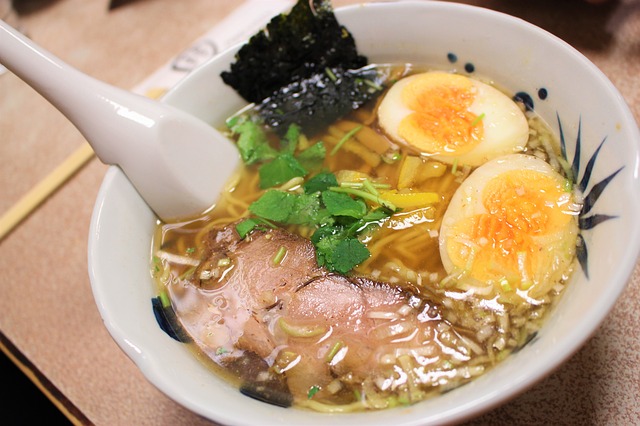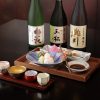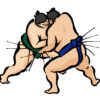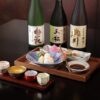Meaning of “oishii” “umai”? What is the difference?おいしい うまい

When Japanese feel “delicious”, “tasty", “yummy" and the like, they often express “oishii” or “umai”, of couse there are more expressions for such a feeling.
Although the meanings of “"oishii" and “umai" are similar, there is a slight difference between them.
Let’s take a closer look at those words.
Let ’s start with “Oishii”.
Examples of “oishii"
These are some examples to use “oishii".
“Okaasan no ryori wa itsumo oishii.”
お母(かあ)さんの料理(りょうり)はいつも美味(おい)しい。
Mom’s cooking is always delicious.
“Nani kore oishii.”
なに これ 美味(おい)しい。
What’s this? It is delicious.
“Totemo oishii desu.”
とても 美味(おい)しい です。
What’s this? It is delicious.
“Oishii desu ka?”
美味(おい)しい です か?
Does it taste good?
“Kinou no sake wa totemo oishikatta.”
昨日(きのう) の 酒(さけ) は とても 美味(おい)しかった。
Yesterday ‘s sake was very delicious.
“Shio wo kakeru to oishiku naru yo.”
塩(しお) を かける と 美味(おい)しく なる よ。
It will be tasty if you put salt on it.
“Karee no oishisa wa supaisu ni aru.”
カレー の 美味(おい)しさ は、スパイス (すぱいす)に ある。
The taste of curry depends on spices.
“Kono shokuji ga motto oishikereba manzoku datta noni!”
この 食事(しょくじ) が もっと 美味(おい)しければ 満足(まんぞく) だった のに!
I would be satisfied if this meal was more delicious.
“Ano resutoran no hou ga oishisou.”
あの レストラン(れすとらん) の 方(ほう) が 美味(おい)しそう。
That restaurant seems to be better.
We will get more delicious food in that restaurant.
“Kono omise no okashi, oishiindatte!”
この お店(みせ) の お菓子(かし)、美味(おい)しいんだって!
I heard that the sweets at this shop were delicious!
“Uwa-, oishiou!”
うわー、美味(おい)しそう!
Wow, it looks delicious!
Another meaning of “oishii"
“Oishii” also has the following meaning besides “delicious”.
· Situation that is favorable to you
“Oishii hanashi”
「おいしい話(はなし)」
Very good deal
“Oishii shigoto”
「おいしい仕事(しごと)」
Favorable work
“Oishii jyoukyou”
「おいしい状況(じょうきょう)」
Favorable situation
What does “umai" mean?
“Umai” also means something tastes good or a some favorable situation, so it has similar meanings like “oishii” and it is used in a similar way.
“Kono sakana umai!”
この 魚(さかな)、うまい!
This fish is delicious!
“Tabete mina umai kara.”
食(た)べて みな、うまい から。
Just eat it, because it is good.
“Sonna umai hanashi ga waruwake nai!”
そんな うまい 話(はなし) が、あるわけない!
It is too good to be true!
“Umai moukebanashi ni notte oozon shita.”
うまい 儲(もう)け 話(ばなし) に 乗(の)って 大損(おおぞん) した。
I lost a lot of money by joining a so-called profitable scheme.
“Nani kore ume —!”
なに これ、うめー。
What is this? So tasty.
“Yabai, majiuma —.”
やばい、まじウマー(うまー)。
“Oh yeah, it’s seriously tasty.”
What is the difference between “oishii" and “umai"?
So what is the difference between the two?
“Oishii” is a common way to say and used by men and women of all ages. “Umai” is more casual than “oishii” and is used in casual situations, and it sounds like a masculine way of speaking.
But some women also use it when speaking with friends or on SNSs, in which case their way of talking sounds less feminine.
Of course, “Oishii” is used in a formal place, but there are many cases where it sounds OK that a man says “umai”.
If you are in Japan, just remember to say “oishii”.
Both are used in a similar sense, but the meaning could be different because of the difference mentioned above.
For example:
“Oishii hanashi(おいしい話(はなし))”
A deal which sounds profitable with favorable condition
“Umai hahashi(うまい話(はなし))”
A deal that sounds too good to be true
By the way, examples of the words that mean the opposite of “oishii" and “umai" are “oishiku nai(おいしくない)", “mazui(まずい)" and so on.
What is the origin of “Oishii"?
From the Muromachi era, there was a noun “ishi” the meaning of which was “excellent”, “superb” and the like.
Then it became an adjective “ishi-i”.
It was used mainly by women, which was meant “delicious”.
They started saying “oishii” with the prefix “o” to sound more politely.
Therefore, “oishii” can be technically separated into o-ishi-i.
When expressed using kanjis, it is “美味しい”.
“美味しい" is a combination of kanji and kana, and these are substitute characters in order to mean “delicious"
“美(び)” expresses “beauty”, “味(あじ)” expresses “taste” and I think it is a good choice of letters.
What is the origin of “umai"?
The origin of “umai” is also “delicious”, but the original meaning is “a ripen fruit becoming sweet”. It is said that “sweetness" meant “delicious" in Japan hundreds of years ago. I have heard that “tasty” is considered a “taste of salt” in Europe.
It is an interesting cultural difference.














